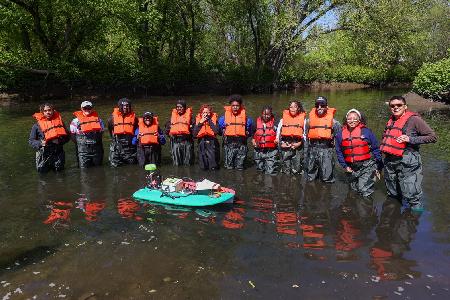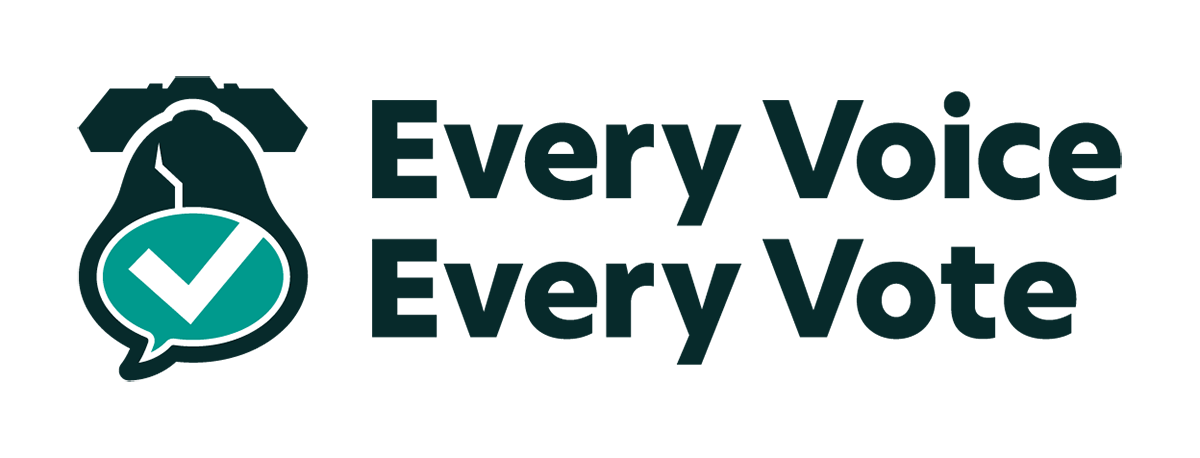
This content is a part of Every Voice, Every Vote, a collaborative project managed by The Lenfest Institute for Journalism. Lead support is provided by the William Penn Foundation with additional funding from The Lenfest Institute, Peter and Judy Leone, the John S. and James L. Knight Foundation, Harriet and Larry Weiss, and the Wyncote Foundation, among others. To learn more about the project and view a full list of supporters, visit everyvoice-everyvote.org. Editorial content is created independently of the project’s donors.
On May 16, voters will be choosing the Democratic and Republican candidates who will face off in November’s general election to replace outgoing Mayor Jim Kenney.
In Philadelphia, where Democratic voters outnumber Republicans about seven to one, the primary election is often the main focus for candidates.
The race started out crowded, but a few candidates have dropped out in the last few weeks. Currently, 10 candidates remain — nine Democrats and one Republican. As part of Technical.ly’s participation in the Every Voice, Every Vote coalition of Philadelphia community and media organizations aiming to center voter voices in this election, we surveyed candidates on issues that are important to various technology and entrepreneurship community stakeholders.
We formed the questions based on the issues our community said were most important to them right now, and themes of supporting small businesses, attracting talent, and continuing to grow Philly’s tech and life sciences sectors emerged. Technical.ly contacted the candidates running for mayor with a survey, and we included the emailed responses of candidates who participated below. We will update this story as more candidates respond.
Each candidate answered these five questions:
- What is a lesson on leadership that you’ll follow as chief executive of a workforce of more than 25,000 city employees?
- How will your administration use technology to make city government more effective, efficient and accessible?
- What will you do to attract new talent to Philadelphia and retain remote workers?
- What role does city government have in workforce development for fast-growing industries such as technology, life sciences and healthcare?
- What specific changes would you make to support the start and growth of new
businesses in Philadelphia?
Rebecca Rhynhart (D)
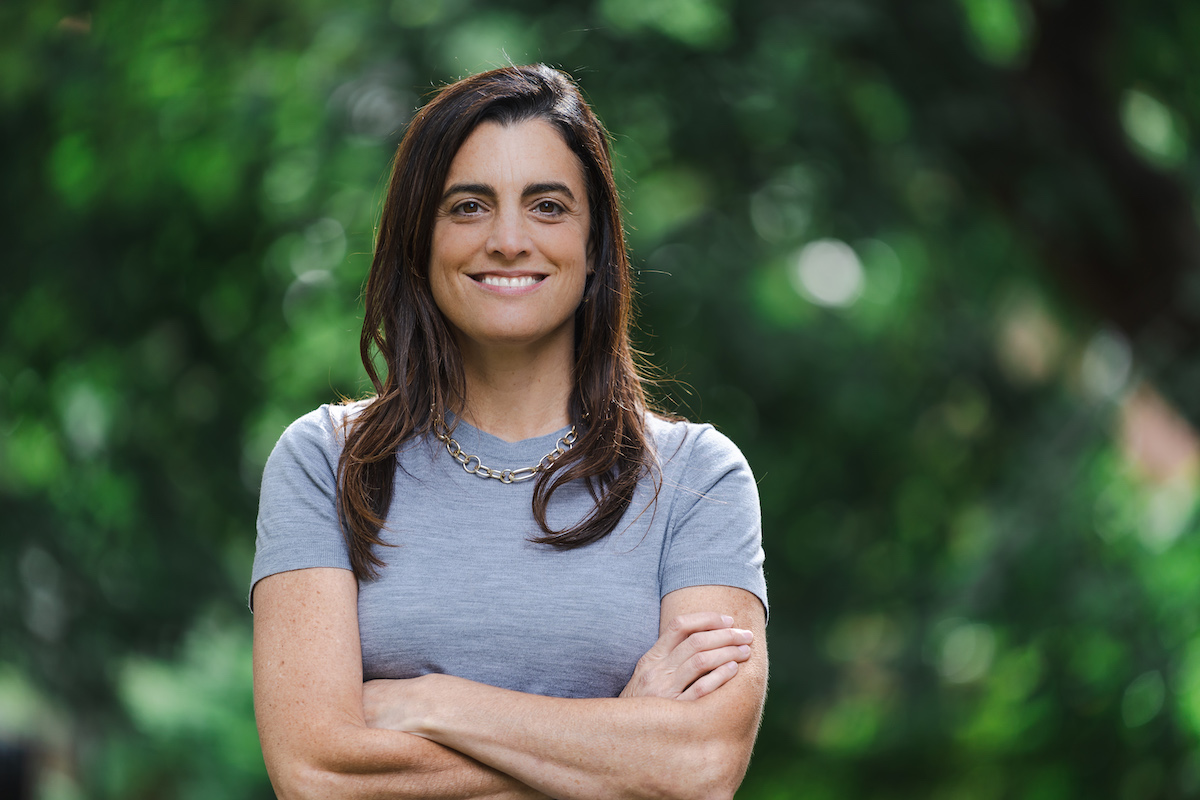
Rebecca Rhynhart. (Courtesy photo)
What is a lesson on leadership that you’ll follow as chief executive of a workforce of more than 25,000 city employees?
I am the only candidate running for mayor with citywide executive experience and as chief administrative officer, I managed 1,000 employees. Both of these experiences have taught me a lot about the importance of leadership and management ability, and as mayor, I will apply the lessons from these experiences to making our city run as effectively and efficiently as possible. More than anything else, I know the importance of having a strong team of the best people you can hire. Our residents deserve public servants with exceptional dedication to our city and I will always keep that in mind as I make appointments and hires throughout my administration.
How will your administration use technology to make city government more effective, efficient and accessible?
Throughout my career in public service, including as city controller, I have consistently taken a data-driven approach to evaluating and solving our city’s biggest problems — from identifying disparities between neighborhoods in trash pick up and 911 response times to uncovering wasteful spending. I will continue to lead this way as mayor, by using technology in both simple and innovative ways to make our city work better for our residents.
One example of this during my time as controller was when my office established a dashboard identifying hotspots where gun violence occurs in our city so that we have the tools to target resources and interventions to those priority areas. As mayor, I’ll use this same approach of visualizing data to evaluate our progress toward goals such as expanding our affordable housing stock, the city’s tree canopy, and bike lane connectivity throughout our neighborhoods. As the city’s chief administrative officer, I established a web portal to simplify the procurement process through with Philadelphia contracted with vendors for city projects known as Contract PHL. This portal eliminated red tape and improved the ease of doing business with the city. As mayor, I would continue to look for and implement ways we can use technology and data to eliminate inefficiencies.
What will you do to attract new talent to Philadelphia and retain remote workers?
Philadelphia is a great city. We’re an affordable city to raise a family compared to our peer cities on the East Coast. We’re a diverse city with world-class arts and culture, sports teams, universities, companies, and restaurants. We need a mayor who has the experience, knowledge, and passion to make sure that our greatness can fully shine through. Philadelphia has a lot to offer prospective residents, whether they work remotely or in person.
My administration’s top priority will be to make our city safer for all of our residents. I’ll make sure that we implement a comprehensive strategy to grow our small business economy and make our business corridors vibrant throughout all of our neighborhoods. My administration will expand our affordable housing stock by implementing a citywide housing plan in collaboration with City Council and incentivizing affordable home ownership.
Additionally, I will be a fervent supporter of our city’s arts and cultural sectors so that Philadelphia remains and becomes an even greater cultural destination for visitors and prospective residents. I will appoint a deputy mayor of arts and culture whose mission will include weaving the arts throughout all our city departments and ensuring the arts have the funding they need to flourish. We also have a unique opportunity in 2026 when Philadelphia will be on the world’s stage to showcase the greatness of this city. When I’m mayor, I’ll make sure from day one that we have plan to seize upon and maximize that opportunity to show the world why Philadelphia is a best-in-class city.
What role does city government have in workforce development for fast-growing industries such as technology, life sciences and healthcare?
As mayor, I will work tirelessly to create workforce pipelines and job training for the residents of our most disadvantaged neighborhoods. My administration will invest in the Community College of Philadelphia, a workforce development engine for so many Philadelphians, and I will make sure that publicly-funded workforce training programs are focused on measurable, skill-based outcomes. Our city is emerging as the epicenter for life sciences, a sector projected to bring thousands of jobs to our city in the coming years. We must create workforce pipelines and job training programs centered in our neighborhoods where we can up-skill our residents, so they can access good jobs with family-sustaining wages. We can do this through business support services and scaling up the capacity of organizations already offering such services through partnerships with the city.
Over the next five years, Philadelphia will have the opportunity to access approximately $735 million of federal funding. This historic investment from the Infrastructure Investment and Jobs Act (IIJA) represents a once-in-a-lifetime opportunity for cities to invest not only in infrastructure but in our local business economy and minority contractors. As a member of Accelerator for America, I have had the opportunity to work with and meet with mayors from across the country, discussing the best practices for both the IIJA money and the American Recovery money. The IIJA money specifically calls for 10% of spending on surface transportation and transit programs to be spent on Disadvantaged Business Enterprises. Even without the direct mandate for energy, water and other projects, as mayor, I will encourage our utility companies and direct city departments to exceed that metric and have our minority participation in these projects reflect the rich diversity of our city. By identifying which infrastructure projects we will prioritize and setting minority participation goals, we can create a new generation of minority-owned construction businesses and an opportunity to build true wealth in our communities.
To truly position communities to take advantage of the jobs created by this influx of money, we need to establish training hubs such as the laborers training facility in our neighborhoods to help upskill residents to be ready to fill the needed roles as the projects begin. This can be accomplished through apprenticeship programs, career and technical education (CTE) courses in our high schools and partnering with trades and other organizations that can go directly into our different communities to train and develop a new workforce. As mayor, I will move to fund such programs and provide the support needed for their success.
What specific changes would you make to support the start and growth of new
businesses in Philadelphia?
To reduce red tape and support economic growth, I will appoint a senior official to oversee an effort focused on identifying and reducing the interdepartmental issues that prevent many small businesses from getting started and growing. Informed by businesses large and small from all sectors of the economy, the new team will coordinate the Revenue, Licensing and Inspections, Water, Streets and Health Departments, and other city agencies to streamline permitting and inspections. This stronger coordination will ensure new businesses can open and existing businesses can still serve their clients and customers. This team will also identify key stumbling blocks and utilize best practices learned from other municipalities to make long-overdue structural changes to the city department processes that hold back our economy. It’s also well past time that we evaluate our entire tax structure, balancing businesses’ growth goals with assurances that the city’s tax burden does not fall on our most vulnerable residents. Currently, Philadelphia is one of four municipalities that taxes both profits and sales, meaning startups that operate at a loss face a significant tax burden they wouldn’t face in other jurisdictions. In addition, businesses are forced to pay next year’s revenue taxes upfront before they even know what their earnings will be.
This policy can devastate small businesses, and it needs to be urgently addressed and changed, with lowering the Business Income and Receipts Tax as the key goal. Not only does our tax system put an undue burden on small businesses, it also puts an undue burden on our employees. The Philadelphia wage tax is the highest in the nation. My administration will remain committed to lowering the local wage tax. The COVID-19 pandemic has fundamentally changed the way people work. More and more employers have turned to virtual offices and more employees are working from home. This economic shift represents both a challenge and an opportunity. I will work with property owners and CEOs as they rethink how our Center City core can be used and assess how those changes will affect city tax revenues. Other cities are already beginning to address the changes to downtowns that Covid brought–we must look at the ideas emerging elsewhere and, alongside property owners, consider what will work best for us here in Philadelphia. I will also work with large nonprofits to determine the best way for them to support the city’s revenue base in a recurring way. Doing these things can create more tax revenue to fund vital city services without disproportionately affecting our residents and emerging businesses.
David Oh (R)

David Oh. (Courtesy photo)
What is a lesson on leadership that you’ll follow as chief executive of a workforce of more than 25,000 city employees?
A lesson on leadership that I’ll follow as the chief executive of a large multipurpose, service organization, is one I learned as an officer in the US Army. And that is how to lead a large organization from the ground up through a structure of managers with delegated responsibilities and authority. Specifically, the role of the chief executive in getting the very best from the workforce by providing a clear vision with widespread support of a better future for all, and specific goals to achieve the mission within the timeframe set. It’s important to know the overall operation of the organization and provide leadership to top level managers without micromanaging them or bottlenecking the flow of work. It’s equally important to know the importance and value of the lowest level worker and ensure they have what they need to accomplish their tasks, including good morale. Above all, to ensure that throughout the organization, workers understand and are incentivized to serve the people of this city and the public interest.
How will your administration use technology to make city government more effective, efficient and accessible?
Very early on, I would meet with the [Office of Innovation and Technology] and see what ideas are pending, and have not been implemented because of a lack of personnel, funding or bureaucratic red tape that will improve the efficiency of government. Technology can have a significant impact on overall communications in government — both on communication between individual departments, and how government communicates with its citizens. Many complaints from citizens center on the difficulty of getting answers from city government. 911 calls must be answered immediately with quick emergency response to follow. Technology can ensure that happens, immediately. I would also take a hard look at the 311 system and see how questions are categorized, answered, and referred to the appropriate department for resolution. I would meet with 311 leadership and see what recommendations they have to improve the overall effectiveness of the system. There should be a point of contact in all relevant departments that is designated to respond to 311 inquiries. If these points of contact do not exist, I would require each appropriate department have such a centralized point of contact.
What will you do to attract new talent to Philadelphia and retain remote workers?
People must want to live in the city or work remotely for a company located in the city. Philadelphia is a historic city with a solid base in arts, cultural, sports and entertainment. There are many attractive points about Philadelphia. City government must enhance the good things the city offers and help employers attract and retain workers. Things that deter new talent from coming to Philadelphia are the high crime rate, high taxes, lack of good schools, uncertain economic growth and unfavorable regulations that adversely affect the quality of life here in Philadelphia. Taking into consideration just medicine, life sciences and education, there are numerous opportunities here in Philadelphia. Add to it, the potential of the creative arts economy and the opportunities increase and broaden. We must do all we can to fill those jobs and opportunities. As mayor, I would be proactive in pursuing new employers and investors to Philadelphia. At the same time, I would take immediate action to reduce the crime. People have to feel safe in our city. I will continue to advocate for lower taxes, across the board and plan further decreases in the wage tax and business taxes. As stated previously, I would closely evaluate all regulations that have an adverse effect on quality of life.
What role does city government have in workforce development for fast-growing industries such as technology, life sciences and healthcare?
As a Council member, I created a $15,000 veterans employment tax credit. It helps employers hire veterans who have the skills and experience they are seeking. I also introduced a bill to create a $7,500 student debt tax credit for residents who live and work in Philadelphia. Unfortunately, that bill failed. As mayor, I will work hard to create a very attractive environment for employees to choose to live and work in our city. I’ll have the Department of Commerce review the City’s existing workforce development programs and evaluate what is in place with regard to effectiveness and utilization. If there are deficiencies I would request recommendations for improvement from stakeholders that could improve the city’s role in workforce development. Also, I would have Commerce Department look at all locally available federal programs to determine if they are being effectively utilized by Philadelphia’s citizens.
I would have the Commerce Department determine if the funding for workforce development is sufficient — and if not, seek input from stakeholders as the how existing, or additional funding, can be effectively utilized. Community College of Philadelphia can have a role in workforce development for the technology, life sciences and healthcare industries. I would request the college to take a look at its current curriculum and see if an expansion could assist in workforce development for these critical industries. I would also seek to implement a European-style VET (vocational education and training) program in public high schools whereby students would be able to attend classes three days a week and work for an employer two days a week.
What specific changes would you make to support the start and growth of new businesses in Philadelphia?
As stated above one of the major roles of city government is to create a favorable environment for new businesses to locate (or expand) here in Philadelphia. Municipal services have to be improved and online access must be increased and improved. In-person services must also be streamlined and made customer friendly. We must create a competitive tax structure, eliminate oppressive regulations, and improve the overall quality of life. These are common sense factors that would make doing business in Philadelphia financially attractive. We also need to dramatically improve Philadelphia’s primary and secondary education system. If a business is looking at locating in the city, it will always take a hard look at educational opportunities for the children of its workers and the pipeline of fresh talent. With all students at all levels performing below satisfactory standards in math and English, it is obvious that a dramatic improvement in Philadelphia’s schools is necessary. This will be one of the major focus points for me as mayor — establishment of a remedial curriculum for math and science to get our students performing at satisfactory levels.
James DeLeon (D)

James DeLeon. (Courtesy photo)
What is a lesson on leadership that you’ll follow as chief executive of a workforce of more than 25,000 city employees?
As Mayor, I would employ a transformational leadership style to engage and influence both business and civic stakeholders to perform beyond their respective perceived capabilities with the goal to achieve remarkable results for the betterment of the city. This would require input from the business and civic communities in governmental decision-making processes to ensure needed participation in those affairs that are of concern to them, while also allowing them to be innovative and to think “outside of the box” with the ultimate goal of getting problems solved and new programs developed and/or implemented. This leadership style will work for the betterment of both the city and its citizens.
How will your administration use technology to make city government more effective, efficient and accessible?
If elected Mayor, my vision for the city is to create an urban environment that will give all citizens an opportunity to live a higher quality of life while also generating overall economic growth for all businesses located within Philadelphia. I intend to position this city as a “smart city” through: technological development, improved and user-friendly online government services, enhanced transportation systems, more secure public spaces and sustainable development. The above goals will be achieved by:
- Reducing crime and gun violence through implementation of the Local Incident Management System program (“LIMS”). Upon implementation of the LIMS program, walkable neighborhoods will be created thereby enhancing access and patronage of local businesses by the consuming public
- Investing in creation of more “green” infrastructures within the city neighborhoods and improved maintenance of city parks and green spaces
- Embracing the sharing economy
- Incorporating arts and culture into every facet of our communities
- Connecting people to business and employment opportunities through education and job training programs
- Increasing the “farm to table” flow of locally grown and produced foods to the city’s grocery outlets and restaurants
- Making existing buildings efficient, healthy and resilient
What will you do to attract new talent to Philadelphia and retain remote workers?
Philadelphia has the highest local wage tax in the country. The city wage tax has long been considered a strong factor in driving businesses and residents away from the city. I would work with state lawmakers to change the state uniformity clause so that the city can impose a higher tax rate on commercial properties than for residential properties and use that tax to offset the potential revenue loss through lowering wage, business income and receipts taxes. I would also make it easier for businesses to register and operate within the city by streamlining regulations and bureaucratic demands currently in place that hamper new and existing businesses from operating within Philadelphia. Thus, I would support the accelerated reductions of both the city Wage and the Business Income and Receipts taxes.
What role does city government have in workforce development for fast-growing industries such as technology, life sciences and healthcare?
Philadelphia’s education and workforce development priorities should be to improve coordination of education, workforce development and economic development programs to ensure that students are given access to apprenticeships and internships aimed at preparing them to enter the workforce as a trained asset to the employer. The program developed to implement this coordination of resources would use comprehensive sources of data to track education and workforce development to assess the impact of the programs on producing trained and skilled workers and to assist planning for future needs to enhance continued success of the workforce development program. There will also be a direct focus on improvement of educational quality, access and coherence to ensure student success and engagement in the workforce development process. Finally, the program would ensure improved workforce development service delivery to those students interested in pursuing this career path to skilled labor training and employment.
What specific changes would you make to support the start and growth of new businesses in Philadelphia?
To push economic development and improve our city’s residents’ access to higher wage jobs, I would initiate solutions-based city-wide listening sessions with business owners, especially small business owners with the goal of providing economic incentives to those businesses who offered higher wage-earning opportunities to city residents. I would task the city’s Chamber of Commerce with developing processes and procedures to immediately increase our large business sectors and assist in establishing business incubators in our neighborhoods. I would also provide city funds to improve and preserve commercial business corridors. Finally, I would fund programs to implement technical assistance to all small businesses operating within the City of Philadelphia.
Jeff Brown (D)

Jeff Brown. (courtesy photo)
What is a lesson on leadership that you’ll follow as chief executive of a workforce of more than 25,000 city employees?
For over 35 years, I led a unionized grocery business employing over 60,000 people throughout my career. Before opening a store, I always held town hall meetings to learn about the neighborhood and listen to voices from the community. It was through these conversations that I learned about the needs of the community and how to best serve them. For example, some of my stores serve communities with a large Muslim population. In these stores, I brought in halal products and meat rooms to accommodate my customers. At one town hall, a woman approached me to express her concern about the large number of returning citizens in the community who were unable to get jobs due to their records. That was the catalyst that led my wife Sandy and me to start UpLift Solutions, which has trained hundreds of returning citizens and has helped them find meaningful employment. From these town halls and my engagement in the communities I serve, I’ve learned that listening is key to great leadership. My ability to listen to and meet the needs of my customers has defined my success as a grocer and as a leader and I will bring these experiences with me as mayor.
How will your administration use technology to make city government more effective, efficient and accessible?
I will have a cabinet-level position for process improvement and technology. This team will work to simplify all of our processes, so we have a robust, user-friendly online system for everything one needs to do with the city, such as registering and operating businesses. We need to dismantle all barriers the city places between Philadelphians and the services and information they need.
What will you do to attract new talent to Philadelphia and retain remote workers?
To attract new talent, my administration will create an incentive for growing existing businesses or moving your business to Philadelphia. The incentive will be based on how many Philadelphia citizens are hired and the economic employment and business brought to the city. This 10-year incentive will give 50% of the city’s economic benefit gained from the business back to the business. My administration will work to make this incentive stackable with state and federal incentives to maximize that capital for growing businesses in Philadelphia.
Additionally, in order to attract new talent and retain remote workers, we must make our city safe for all. By working with the police to get violent repeat offenders off of our streets and ending the epidemic of violence we are facing, we will be more attractive to businesses.
What role does city government have in workforce development for fast-growing industries such as technology, life sciences and healthcare?
The city needs to be active in redesigning our schools. Currently, our school system is designed to get Philadelphia students to gain admission to college, despite the fact that a majority of our students don’t plan on going to college. My administration will prioritize career and technical education in our school district so students not going to college feel secure knowing they have the skills and training to receive a well-paying union job after graduation. I also want Philadelphians without college degrees to have the opportunity to be trained for lucrative jobs in manufacturing, logistics and more. As part of this vision, I will work to bring jobs into Philadelphia that meet these criteria. While we are a leading city in biotechnical engineering and gene therapy, most of this technology isn’t being manufactured in Philadelphia. We need to bring these jobs to our city.
What specific changes would you make to support the start and growth of new businesses in Philadelphia?
My administration will create opportunities for entrepreneurs to create and achieve their dreams, with an emphasis on uplifting entrepreneurs of color. Through my Brown’s Business Incubator, I’ve been able to help 300+ entrepreneurs make their businesses a reality and I look forward to expanding these efforts as Mayor. As I mentioned before, my administration will also create an incentive for growing existing businesses or moving your business to Philadelphia. The incentive will be based on the number of Philadelphia citizens hired and the economic employment and business brought to the city. This 10-year incentive will give 50% of the city’s economic benefit gained from the business back to the business. My administration will work to make this incentive stackable with state and federal incentives to maximize capital for growing businesses in Philadelphia.
Finally, I plan to support new and existing businesses to grow citywide and create more jobs by making our city safe for all. Addressing gun violence is my top priority to ensure that Philadelphians, businesses, and tourists thrive. To achieve this, I plan to hire more officers in our police department, build strong community ties, open rec centers and libraries and improve our forensics resources.
Join the conversation!
Find news, events, jobs and people who share your interests on Technical.ly's open community Slack
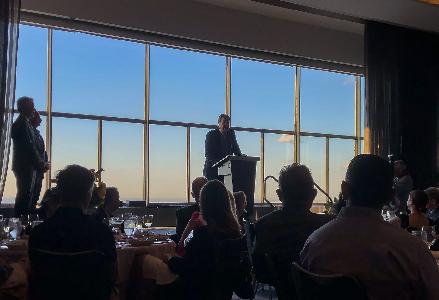
Philly daily roundup: Minecraft in a Philly school; PTW kicks off; Tech and art happy hour
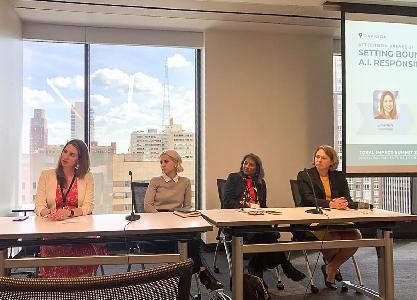
Philly daily roundup: Philly's top innovation leaders; City buildings go solar; PTW kicks off on Friday
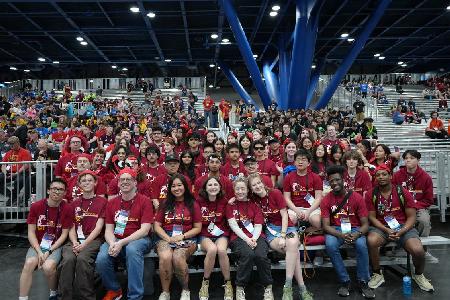
Philly daily roundup: UPenn's AI master's degree; Advice for EDA Tech Hubs; Last day of ACP
